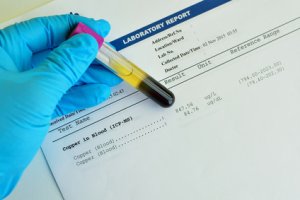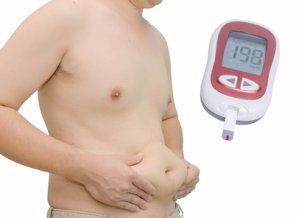afterLoad (456.22KB) (585μs)
afterInitialise (1.27MB) (12.8ms)
afterRoute (840.47KB) (4.61ms)
beforeRenderComponent com_tags (20.75KB) (279μs)
afterRenderComponent com_tags (1.58MB) (66.44ms)
afterDispatch (28.08KB) (6.95ms)
beforeRenderRawModule mod_articles_category (READ MORE...) (439.86KB) (26.75ms)
Before Access::preloadComponents (all components) (50.9KB) (489μs)
After Access::preloadComponents (all components) (103.05KB) (4.43ms)
Before Access::getAssetRules (id:8 name:com_content) (840B) (17μs)
After Access::getAssetRules (id:8 name:com_content) (7.05KB) (50μs)
afterRenderRawModule mod_articles_category (READ MORE...) (8KB) (175ms)
beforeRenderRawModule mod_custom (BOOST YOUR IMMUNE DEFENSE) (6.45KB) (35μs)
afterRenderRawModule mod_custom (BOOST YOUR IMMUNE DEFENSE) (3.8KB) (209μs)
beforeRenderRawModule mod_tags_popular (Search) (2.36KB) (16μs)
afterRenderRawModule mod_tags_popular (Search) (42.23KB) (203ms)
beforeRenderRawModule mod_custom (Get additionel and more detailed knowledge ) (816B) (42μs)
afterRenderRawModule mod_custom (Get additionel and more detailed knowledge ) (1.55KB) (59μs)
beforeRenderRawModule mod_custom (Overview of vitamins, minerals, and essential fatty acids) (768B) (12μs)
afterRenderRawModule mod_custom (Overview of vitamins, minerals, and essential fatty acids) (960B) (23μs)
beforeRenderRawModule mod_custom (Q10 goes by many names) (608B) (10μs)
afterRenderRawModule mod_custom (Q10 goes by many names) (928B) (19μs)
beforeRenderRawModule mod_custom (Check this before you buy a Q10 product) (752B) (9μs)
afterRenderRawModule mod_custom (Check this before you buy a Q10 product) (944B) (18μs)
beforeRenderRawModule mod_custom (Are you taking supplements) (736B) (9μs)
afterRenderRawModule mod_custom (Are you taking supplements) (1.03KB) (18μs)
beforeRenderRawModule mod_custom (Weight loss that works) (736B) (9μs)
afterRenderRawModule mod_custom (Weight loss that works) (1.03KB) (18μs)
beforeRenderRawModule mod_custom (Antiaging) (720B) (9μs)
afterRenderRawModule mod_custom (Antiaging) (912B) (17μs)
beforeRenderRawModule mod_menu (Are you getting enough vitamins and minerals?) (2.5KB) (11μs)
afterRenderRawModule mod_menu (Are you getting enough vitamins and minerals?) (22.39KB) (535μs)
beforeRenderRawModule mod_menu (The key to increased well-being) (736B) (17μs)
afterRenderRawModule mod_menu (The key to increased well-being) (17.83KB) (1.3ms)
beforeRenderRawModule mod_menu (Did you know.....) (720B) (18μs)
afterRenderRawModule mod_menu (Did you know.....) (25.52KB) (297μs)
beforeRenderRawModule mod_custom (Useful Links) (1.06KB) (14μs)
afterRenderRawModule mod_custom (Useful Links) (1.02KB) (31μs)
beforeRenderRawModule mod_custom (Chronic fatigue tied Alan to his bed but Q10 capsules saved him:) (244.28KB) (6.26ms)
afterRenderRawModule mod_custom (Chronic fatigue tied Alan to his bed but Q10 capsules saved him:) (1.06KB) (43μs)
beforeRenderModule mod_custom (Chronic fatigue tied Alan to his bed but Q10 capsules saved him:) (768B) (5μs)
afterRenderModule mod_custom (Chronic fatigue tied Alan to his bed but Q10 capsules saved him:) (1.3KB) (57μs)
beforeRenderRawModule mod_custom (Cholesterol-lowering without side effects:) (368B) (13μs)
afterRenderRawModule mod_custom (Cholesterol-lowering without side effects:) (1.06KB) (24μs)
beforeRenderModule mod_custom (Cholesterol-lowering without side effects:) (752B) (2μs)
afterRenderModule mod_custom (Cholesterol-lowering without side effects:) (1.28KB) (3.06ms)
beforeRenderModule mod_articles_category (READ MORE...) (20.82KB) (405μs)
afterRenderModule mod_articles_category (READ MORE...) (1.25KB) (50μs)
beforeRenderModule mod_custom (BOOST YOUR IMMUNE DEFENSE) (6.81KB) (14μs)
afterRenderModule mod_custom (BOOST YOUR IMMUNE DEFENSE) (1.28KB) (25μs)
beforeRenderModule mod_tags_popular (Search) (1.98KB) (12μs)
afterRenderModule mod_tags_popular (Search) (1.27KB) (21μs)
beforeRenderModule mod_custom (Get additionel and more detailed knowledge ) (1.17KB) (10μs)
afterRenderModule mod_custom (Get additionel and more detailed knowledge ) (1.3KB) (21μs)
beforeRenderModule mod_custom (Overview of vitamins, minerals, and essential fatty acids) (384B) (9μs)
afterRenderModule mod_custom (Overview of vitamins, minerals, and essential fatty acids) (1.31KB) (20μs)
beforeRenderModule mod_custom (Q10 goes by many names) (208B) (9μs)
afterRenderModule mod_custom (Q10 goes by many names) (1.27KB) (20μs)
beforeRenderModule mod_custom (Check this before you buy a Q10 product) (352B) (9μs)
afterRenderModule mod_custom (Check this before you buy a Q10 product) (1.28KB) (20μs)
beforeRenderModule mod_custom (Are you taking supplements) (352B) (8μs)
afterRenderModule mod_custom (Are you taking supplements) (1.28KB) (20μs)
beforeRenderModule mod_custom (Weight loss that works) (336B) (9μs)
afterRenderModule mod_custom (Weight loss that works) (1.27KB) (20μs)
beforeRenderModule mod_custom (Antiaging) (336B) (9μs)
afterRenderModule mod_custom (Antiaging) (3.77KB) (20μs)
beforeRenderModule mod_menu (Are you getting enough vitamins and minerals?) (2.13KB) (11μs)
afterRenderModule mod_menu (Are you getting enough vitamins and minerals?) (1.3KB) (20μs)
beforeRenderModule mod_menu (The key to increased well-being) (352B) (10μs)
afterRenderModule mod_menu (The key to increased well-being) (1.28KB) (19μs)
beforeRenderModule mod_menu (Did you know.....) (336B) (10μs)
afterRenderModule mod_menu (Did you know.....) (1.27KB) (20μs)
beforeRenderModule mod_custom (Useful Links) (1.44KB) (9μs)
afterRenderModule mod_custom (Useful Links) (1.27KB) (20μs)
beforeRenderRawModule mod_menu (Main Menu - English) (29.14KB) (5.85ms)
afterRenderRawModule mod_menu (Main Menu - English) (192.45KB) (7.78ms)
beforeRenderModule mod_menu (Main Menu - English) (720B) (5μs)
afterRenderModule mod_menu (Main Menu - English) (4.86KB) (56μs)
beforeRenderRawModule mod_languages (Sprogskift) (3.94KB) (19μs)
afterRenderRawModule mod_languages (Sprogskift) (22.55KB) (4.32ms)
beforeRenderModule mod_languages (Sprogskift) (720B) (6μs)
afterRenderModule mod_languages (Sprogskift) (5.31KB) (22μs)
beforeRenderRawModule mod_finder () (6.34KB) (11μs)
afterRenderRawModule mod_finder () (128.59KB) (17.63ms)
beforeRenderModule mod_finder () (704B) (5μs)
afterRenderModule mod_finder () (3.29KB) (35μs)
beforeRenderRawModule mod_custom () (6.62KB) (147μs)
afterRenderRawModule mod_custom () (22.64KB) (9.49ms)
beforeRenderModule mod_custom () (704B) (6μs)
afterRenderModule mod_custom () (1.23KB) (51μs)
beforeRenderRawModule mod_menu (Main Menu - English) (5.07KB) (115μs)
afterRenderRawModule mod_menu (Main Menu - English) (6.3KB) (8.87ms)
beforeRenderModule mod_menu (Main Menu - English) (720B) (6μs)
afterRenderModule mod_menu (Main Menu - English) (1.25KB) (53μs)
beforeRenderRawModule mod_languages (Sprogskift Mobil) (912B) (20μs)
afterRenderRawModule mod_languages (Sprogskift Mobil) (3.89KB) (2.8ms)
beforeRenderModule mod_languages (Sprogskift Mobil) (720B) (6μs)
afterRenderModule mod_languages (Sprogskift Mobil) (1.27KB) (35μs)
beforeRenderRawModule mod_finder () (2.3KB) (12μs)
afterRenderRawModule mod_finder () (6.29KB) (3.98ms)
beforeRenderModule mod_finder () (704B) (5μs)
afterRenderModule mod_finder () (1.23KB) (47μs)
beforeRenderRawModule mod_custom () (8.66KB) (184μs)
afterRenderRawModule mod_custom () (904B) (152μs)
beforeRenderModule mod_custom () (704B) (3μs)
afterRenderModule mod_custom () (2.43KB) (25μs)
beforeRenderRawModule mod_custom () (688B) (79μs)
afterRenderRawModule mod_custom () (896B) (95μs)
beforeRenderModule mod_custom () (704B) (3μs)
afterRenderModule mod_custom () (2.71KB) (22μs)
afterRender (307.87KB) (32.76ms)
| 1 x afterRenderRawModule mod_tags_popular (Search) (42.23KB) (33.26%) | 202.75ms |
| 1 x afterRenderRawModule mod_articles_category (READ MORE...) (8KB) (28.74%) | 175.20ms |
| 1 x afterRenderComponent com_tags (1.58MB) (10.9%) | 66.44ms |
| 1 x afterRender (307.87KB) (5.37%) | 32.76ms |
| 1 x beforeRenderRawModule mod_articles_category (READ MORE...) (439.86KB) (4.39%) | 26.75ms |
| 1 x afterRenderRawModule mod_finder () (128.59KB) (2.89%) | 17.63ms |
| 1 x afterInitialise (1.27MB) (2.1%) | 12.80ms |
| 1 x afterRenderRawModule mod_custom () (22.64KB) (1.56%) | 9.49ms |
| 1 x afterRenderRawModule mod_menu (Main Menu - English) (6.3KB) (1.46%) | 8.87ms |
| 1 x afterRenderRawModule mod_menu (Main Menu - English) (192.45KB) (1.28%) | 7.78ms |
| 1 x afterDispatch (28.08KB) (1.14%) | 6.95ms |
| 1 x beforeRenderRawModule mod_custom (Chronic fatigue tied Alan to his bed but Q10 capsules saved him:) (244.28KB) (1.03%) | 6.26ms |
| 1 x beforeRenderRawModule mod_menu (Main Menu - English) (29.14KB) (0.96%) | 5.85ms |
| 1 x afterRoute (840.47KB) (0.76%) | 4.61ms |
| 1 x After Access::preloadComponents (all components) (103.05KB) (0.73%) | 4.43ms |
| 1 x afterRenderRawModule mod_languages (Sprogskift) (22.55KB) (0.71%) | 4.32ms |
| 1 x afterRenderRawModule mod_finder () (6.29KB) (0.65%) | 3.98ms |
| 1 x afterRenderModule mod_custom (Cholesterol-lowering without side effects:) (1.28KB) (0.5%) | 3.06ms |
| 1 x afterRenderRawModule mod_languages (Sprogskift Mobil) (3.89KB) (0.46%) | 2.80ms |
| 1 x afterRenderRawModule mod_menu (The key to increased well-being) (17.83KB) (0.21%) | 1.30ms |
| 1 x afterLoad (456.22KB) (0.1%) | 585μs |
| 1 x afterRenderRawModule mod_menu (Are you getting enough vitamins and minerals?) (22.39KB) (0.09%) | 535μs |
| 1 x Before Access::preloadComponents (all components) (50.9KB) (0.08%) | 489μs |
| 1 x beforeRenderModule mod_articles_category (READ MORE...) (20.82KB) (0.07%) | 405μs |
| 1 x afterRenderRawModule mod_menu (Did you know.....) (25.52KB) (0.05%) | 297μs |
| 1 x beforeRenderComponent com_tags (20.75KB) (0.05%) | 279μs |
| 1 x afterRenderRawModule mod_custom (BOOST YOUR IMMUNE DEFENSE) (3.8KB) (0.03%) | 209μs |
| 1 x beforeRenderRawModule mod_custom () (8.66KB) (0.03%) | 184μs |
| 1 x afterRenderRawModule mod_custom () (904B) (0.02%) | 152μs |
| 1 x beforeRenderRawModule mod_custom () (6.62KB) (0.02%) | 147μs |
| 1 x beforeRenderRawModule mod_menu (Main Menu - English) (5.07KB) (0.02%) | 115μs |
| 1 x afterRenderRawModule mod_custom () (896B) (0.02%) | 95μs |
| 1 x beforeRenderRawModule mod_custom () (688B) (0.01%) | 79μs |
| 1 x afterRenderRawModule mod_custom (Get additionel and more detailed knowledge ) (1.55KB) (0.01%) | 59μs |
| 1 x afterRenderModule mod_custom (Chronic fatigue tied Alan to his bed but Q10 capsules saved him:) (1.3KB) (0.01%) | 57μs |
| 1 x afterRenderModule mod_menu (Main Menu - English) (4.86KB) (0.01%) | 56μs |
| 1 x afterRenderModule mod_menu (Main Menu - English) (1.25KB) (0.01%) | 53μs |
| 1 x afterRenderModule mod_custom () (1.23KB) (0.01%) | 51μs |
| 1 x After Access::getAssetRules (id:8 name:com_content) (7.05KB) (0.01%) | 50μs |
| 1 x afterRenderModule mod_articles_category (READ MORE...) (1.25KB) (0.01%) | 50μs |
| 1 x afterRenderModule mod_finder () (1.23KB) (0.01%) | 47μs |
| 1 x afterRenderRawModule mod_custom (Chronic fatigue tied Alan to his bed but Q10 capsules saved him:) (1.06KB) (0.01%) | 43μs |
| 1 x beforeRenderRawModule mod_custom (Get additionel and more detailed knowledge ) (816B) (0.01%) | 42μs |
| 1 x beforeRenderRawModule mod_custom (BOOST YOUR IMMUNE DEFENSE) (6.45KB) (0.01%) | 35μs |
| 1 x afterRenderModule mod_finder () (3.29KB) (0.01%) | 35μs |
| 1 x afterRenderModule mod_languages (Sprogskift Mobil) (1.27KB) (0.01%) | 35μs |
| 1 x afterRenderRawModule mod_custom (Useful Links) (1.02KB) (0.01%) | 31μs |
| 1 x afterRenderModule mod_custom (BOOST YOUR IMMUNE DEFENSE) (1.28KB) (0%) | 25μs |
| 1 x afterRenderModule mod_custom () (2.43KB) (0%) | 25μs |
| 1 x afterRenderRawModule mod_custom (Cholesterol-lowering without side effects:) (1.06KB) (0%) | 24μs |
| 1 x afterRenderRawModule mod_custom (Overview of vitamins, minerals, and essential fatty acids) (960B) (0%) | 23μs |
| 1 x afterRenderModule mod_languages (Sprogskift) (5.31KB) (0%) | 22μs |
| 1 x afterRenderModule mod_custom () (2.71KB) (0%) | 22μs |
| 1 x afterRenderModule mod_tags_popular (Search) (1.27KB) (0%) | 21μs |
| 1 x afterRenderModule mod_custom (Get additionel and more detailed knowledge ) (1.3KB) (0%) | 21μs |
| 1 x afterRenderModule mod_custom (Overview of vitamins, minerals, and essential fatty acids) (1.31KB) (0%) | 20μs |
| 1 x afterRenderModule mod_custom (Check this before you buy a Q10 product) (1.28KB) (0%) | 20μs |
| 1 x afterRenderModule mod_custom (Are you taking supplements) (1.28KB) (0%) | 20μs |
| 1 x afterRenderModule mod_custom (Weight loss that works) (1.27KB) (0%) | 20μs |
| 1 x afterRenderModule mod_custom (Antiaging) (3.77KB) (0%) | 20μs |
| 1 x afterRenderModule mod_menu (Are you getting enough vitamins and minerals?) (1.3KB) (0%) | 20μs |
| 1 x afterRenderModule mod_menu (Did you know.....) (1.27KB) (0%) | 20μs |
| 1 x afterRenderModule mod_custom (Useful Links) (1.27KB) (0%) | 20μs |
| 1 x beforeRenderRawModule mod_languages (Sprogskift Mobil) (912B) (0%) | 20μs |
| 1 x afterRenderModule mod_custom (Q10 goes by many names) (1.27KB) (0%) | 20μs |
| 1 x afterRenderRawModule mod_custom (Q10 goes by many names) (928B) (0%) | 19μs |
| 1 x afterRenderModule mod_menu (The key to increased well-being) (1.28KB) (0%) | 19μs |
| 1 x beforeRenderRawModule mod_languages (Sprogskift) (3.94KB) (0%) | 19μs |
| 1 x afterRenderRawModule mod_custom (Check this before you buy a Q10 product) (944B) (0%) | 18μs |
| 1 x afterRenderRawModule mod_custom (Are you taking supplements) (1.03KB) (0%) | 18μs |
| 1 x afterRenderRawModule mod_custom (Weight loss that works) (1.03KB) (0%) | 18μs |
| 1 x beforeRenderRawModule mod_menu (Did you know.....) (720B) (0%) | 18μs |
| 1 x beforeRenderRawModule mod_menu (The key to increased well-being) (736B) (0%) | 17μs |
| 1 x Before Access::getAssetRules (id:8 name:com_content) (840B) (0%) | 17μs |
| 1 x afterRenderRawModule mod_custom (Antiaging) (912B) (0%) | 17μs |
| 1 x beforeRenderRawModule mod_tags_popular (Search) (2.36KB) (0%) | 16μs |
| 1 x beforeRenderModule mod_custom (BOOST YOUR IMMUNE DEFENSE) (6.81KB) (0%) | 14μs |
| 1 x beforeRenderRawModule mod_custom (Useful Links) (1.06KB) (0%) | 14μs |
| 1 x beforeRenderRawModule mod_custom (Cholesterol-lowering without side effects:) (368B) (0%) | 13μs |
| 1 x beforeRenderRawModule mod_custom (Overview of vitamins, minerals, and essential fatty acids) (768B) (0%) | 12μs |
| 1 x beforeRenderModule mod_tags_popular (Search) (1.98KB) (0%) | 12μs |
| 3 x beforeRenderModule mod_custom () (704B) (0%) | 12μs |
| 1 x beforeRenderRawModule mod_finder () (2.3KB) (0%) | 12μs |
| 1 x beforeRenderRawModule mod_menu (Are you getting enough vitamins and minerals?) (2.5KB) (0%) | 11μs |
| 1 x beforeRenderModule mod_menu (Are you getting enough vitamins and minerals?) (2.13KB) (0%) | 11μs |
| 2 x beforeRenderModule mod_menu (Main Menu - English) (720B) (0%) | 11μs |
| 1 x beforeRenderRawModule mod_finder () (6.34KB) (0%) | 11μs |
| 1 x beforeRenderRawModule mod_custom (Q10 goes by many names) (608B) (0%) | 10μs |
| 1 x beforeRenderModule mod_custom (Get additionel and more detailed knowledge ) (1.17KB) (0%) | 10μs |
| 1 x beforeRenderModule mod_menu (The key to increased well-being) (352B) (0%) | 10μs |
| 1 x beforeRenderModule mod_menu (Did you know.....) (336B) (0%) | 10μs |
| 2 x beforeRenderModule mod_finder () (704B) (0%) | 10μs |
| 1 x beforeRenderRawModule mod_custom (Are you taking supplements) (736B) (0%) | 9μs |
| 1 x beforeRenderRawModule mod_custom (Weight loss that works) (736B) (0%) | 9μs |
| 1 x beforeRenderRawModule mod_custom (Antiaging) (720B) (0%) | 9μs |
| 1 x beforeRenderModule mod_custom (Overview of vitamins, minerals, and essential fatty acids) (384B) (0%) | 9μs |
| 1 x beforeRenderModule mod_custom (Q10 goes by many names) (208B) (0%) | 9μs |
| 1 x beforeRenderModule mod_custom (Check this before you buy a Q10 product) (352B) (0%) | 9μs |
| 1 x beforeRenderModule mod_custom (Antiaging) (336B) (0%) | 9μs |
| 1 x beforeRenderModule mod_custom (Useful Links) (1.44KB) (0%) | 9μs |
| 1 x beforeRenderRawModule mod_custom (Check this before you buy a Q10 product) (752B) (0%) | 9μs |
| 1 x beforeRenderModule mod_custom (Weight loss that works) (336B) (0%) | 9μs |
| 1 x beforeRenderModule mod_custom (Are you taking supplements) (352B) (0%) | 8μs |
| 1 x beforeRenderModule mod_languages (Sprogskift) (720B) (0%) | 6μs |
| 1 x beforeRenderModule mod_languages (Sprogskift Mobil) (720B) (0%) | 6μs |
| 1 x beforeRenderModule mod_custom (Chronic fatigue tied Alan to his bed but Q10 capsules saved him:) (768B) (0%) | 5μs |
| 1 x beforeRenderModule mod_custom (Cholesterol-lowering without side effects:) (752B) (0%) | 2μs |
 The trace element chromium improves the effect of insulin, the hormone that helps glucose enter our cells. Chromium is needed for normal sugar metabolism that is closely linked to normal lipid metabolism and weight control. According to a new study of rodents, a chromium-deficient diet that is rich in carbohydrate and fat, increases hunger and energy intake. Also, levels of insulin and lipids in the blood increase, and there is weight gain and an increased risk of developing type 2 diabetes. The new study supports earlier studies of humans where it was seen that chromium is important for both blood sugar levels and weight control. When using chromium supplements, make sure to choose a product with chromium yeast that has good absorption. Also make sure to get plenty of protein that contributes to blood sugar management and fat burning, which makes it easier to lose weight.
The trace element chromium improves the effect of insulin, the hormone that helps glucose enter our cells. Chromium is needed for normal sugar metabolism that is closely linked to normal lipid metabolism and weight control. According to a new study of rodents, a chromium-deficient diet that is rich in carbohydrate and fat, increases hunger and energy intake. Also, levels of insulin and lipids in the blood increase, and there is weight gain and an increased risk of developing type 2 diabetes. The new study supports earlier studies of humans where it was seen that chromium is important for both blood sugar levels and weight control. When using chromium supplements, make sure to choose a product with chromium yeast that has good absorption. Also make sure to get plenty of protein that contributes to blood sugar management and fat burning, which makes it easier to lose weight.







 For the first time ever scientists from California have discovered copper's role in the burning of fat. This improves the nutrient's reputation as an essential nutrient.
For the first time ever scientists from California have discovered copper's role in the burning of fat. This improves the nutrient's reputation as an essential nutrient. Weight-challenged children and teenagers have grown to become a global health threat, and the problem became even worse during the corona pandemic. Overweight is linked to a number of health problems, including non-alcoholic fatty liver disease that sets the stage for type 2 diabetes and other serious ailments. In a new review article that is published in Nutrients, researchers look closer at how a carbohydrate-restricted diet or the traditional Mediterranean diet can help to counteract the development of overweight and non-alcoholic fatty liver disease. Also, supplementation with vitamin E, vitamin D, fish oil, and probiotics can block the development of non-alcoholic fatty liver via different metabolic parameters.
Weight-challenged children and teenagers have grown to become a global health threat, and the problem became even worse during the corona pandemic. Overweight is linked to a number of health problems, including non-alcoholic fatty liver disease that sets the stage for type 2 diabetes and other serious ailments. In a new review article that is published in Nutrients, researchers look closer at how a carbohydrate-restricted diet or the traditional Mediterranean diet can help to counteract the development of overweight and non-alcoholic fatty liver disease. Also, supplementation with vitamin E, vitamin D, fish oil, and probiotics can block the development of non-alcoholic fatty liver via different metabolic parameters. Scientists from Alberta University in Canada have observed that lack of sunlight may contribute to the weight increase that many people experience during the winter period. This is because our fat cells are sensitive to sunlight. Lack of sunlight may also result in poor sleep and low levels of
Scientists from Alberta University in Canada have observed that lack of sunlight may contribute to the weight increase that many people experience during the winter period. This is because our fat cells are sensitive to sunlight. Lack of sunlight may also result in poor sleep and low levels of  A new study reveals that children of mothers’ who lacked
A new study reveals that children of mothers’ who lacked Lactic acid bacteria are many different types of bacteria that produce lactic acid by fermenting carbohydrate. They are widespread in the kingdom of plants and animals. Lactic acid bacteria are also called probiotics which means "pro life" and constitute a vital part of our enormous intestinal microflora that contains more bacteria than body cells and weighs around two kilos.
Lactic acid bacteria are many different types of bacteria that produce lactic acid by fermenting carbohydrate. They are widespread in the kingdom of plants and animals. Lactic acid bacteria are also called probiotics which means "pro life" and constitute a vital part of our enormous intestinal microflora that contains more bacteria than body cells and weighs around two kilos. Earlier studies have found a link between low
Earlier studies have found a link between low  If you want to lose weight and/or maintain your ideal weight, it is important to focus on the right proteins, on
If you want to lose weight and/or maintain your ideal weight, it is important to focus on the right proteins, on  Forget about keeping track of calories if you want to shape up. Weight loss is about eating the right kinds of food, and ensuring an optimal blend of carbohydrates, fat, and protein that guarantees satiety for four to six hours so you are not tempted by quick energy fixes. Continue reading and find out more about why it is so important to get plenty of Q10, iodine, selenium, and chromium for permanent results. The question is, why is it difficult to get enough from a normal diet? And why are so many people suffering from weight problems caused by metabolic disorders and insulin resistance?
Forget about keeping track of calories if you want to shape up. Weight loss is about eating the right kinds of food, and ensuring an optimal blend of carbohydrates, fat, and protein that guarantees satiety for four to six hours so you are not tempted by quick energy fixes. Continue reading and find out more about why it is so important to get plenty of Q10, iodine, selenium, and chromium for permanent results. The question is, why is it difficult to get enough from a normal diet? And why are so many people suffering from weight problems caused by metabolic disorders and insulin resistance?
 According to a new study, supplementing with large doses of
According to a new study, supplementing with large doses of "After about one week of taking the Q10 supplement I could feel a huge difference," says 23-year old Alan Piccini, who has been suffering from extreme fatigue and muscle aches ever since he was a child.
"After about one week of taking the Q10 supplement I could feel a huge difference," says 23-year old Alan Piccini, who has been suffering from extreme fatigue and muscle aches ever since he was a child. “Taking capsules with co-enzyme Q10 has freed me of the severe side effects of my cholesterol lowering medicine,” Mrs Franken explains.
“Taking capsules with co-enzyme Q10 has freed me of the severe side effects of my cholesterol lowering medicine,” Mrs Franken explains.